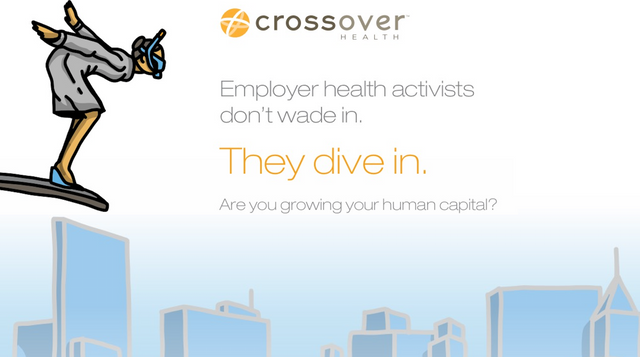"Health Activist" Employers will be the catalyst to health system transformation
Activist employers are upending the $3 trillion American healthcare industry. These employers are reinventing their companies’ healthcare programs instead of relying on an outdated system guided by traditional insurers and benefits advisers. Increasingly, such employers, in partnership with new healthcare providers, are leveraging their positions as payers to offer new benefit designs, engage in direct contracting and put care delivery providers on notice about high-value, best-outcome care.

Under the current system, most healthcare providers are compensated according to the volume of services they provide, not patient outcomes. This model of transactional medicine is fundamentally flawed designed to incent providers to prescribe more, treat more, and bill more. In this paradigm, all parties seem to lose: the patients who can’t get access to relationship-based care; clinicians sprinting on the hamster wheel of fee for service; and employers failing to get value from this ever-more-costly component of their supply chains.
As a result, the last few years have seen multiple large companies, including mega retailers and top technology firms, entering the healthcare space. Waking up to the fact that they are paying for 50% of healthcare spending, these employers are beginning to take on incumbents—insurance companies, hospitals, existing health systems and specialty care—by combining assets in novel ways. These activist employers aim to improve the system by combating prevailing healthcare practices, bringing disruption to healthcare the same way they transformed their industries.
Healthcare incumbents have tried for decades to aggregate providers. But we are now seeing adjacent industries get into the healthcare game. Major retailers, corner drugstores, and insurance companies have all made huge moves in the last six months. Although the deal was called off in early August, Albertsons had planned to add 319 health clinics to its 4,345 pharmacies by merging with Rite Aid, operator of RediClinics. CVS, which recently acquired Aetna, the nation’s third-largest insurer, for $69 billion, has plans to launch additional primary care services. Not to miss out, big-box behemoth Walmart is currently working to acquire insurance company Humana, which was in the process of acquiring long-term care leader Kindred Healthcare.
Some moves by retail giants stem from efforts to defend themselves from the growth of online e-commerce and services. “They’re trying to figure out how to utilize their footprint better, and, by merging with an insurer, their hope clearly must be to be driving more foot traffic into their facilities and figure out a way how to be more on the front line of health-care delivery,” Harvard Business School healthcare industry professor Leemore Dafny recently told The Atlantic.
Technology companies are perhaps the most interesting entrants into the industry, given their attentiveness to customer interests and preferences, not to mention the volume of information they have been able to aggregate on millions of users.
This consumer focus may allow large technology players to become some of the most transformative influences to impact the healthcare industry. Recent innovations like health trackers and telemedicine are gaining traction in helping consumers play a central role in their own well-being. Google has created several health-focused subsidiaries, including Verily, Sidewalk Labs, and others that are attacking many of the most difficult challenges in healthcare.
Apple has also focused attention and resources on healthcare, and it has gotten into care delivery for the company’s employees. Consumer-focused conglomerate Amazon recently announced a new healthcare coalition with Berkshire Hathaway and JP Morgan, the largest combined corporate initiative to date. Given Amazon’s vast consumer-focused distribution network, in combination with Berkshire and JPMorgan’s financial capabilities, it is thought-provoking to consider the possibilities for healthcare.
At its most basic level, fundamental change in healthcare is driven by individual decision-making that is guided, encouraged, and catalyzed most effectively within the context of trusted relationships between individuals and their personal care teams. Like these activist employers, we believe care delivery—focused on patients and clinicians—should be driving these disruption efforts.
We are rooting for all of the players in the race to reform healthcare, but our bet is on the activist employers to cross the finish line first.
Congratulations @scottshreeve! You received a personal award!
Happy Birthday! - You are on the Steem blockchain for 1 year!
Click here to view your Board
Congratulations @scottshreeve! You received a personal award!
You can view your badges on your Steem Board and compare to others on the Steem Ranking
Vote for @Steemitboard as a witness to get one more award and increased upvotes!